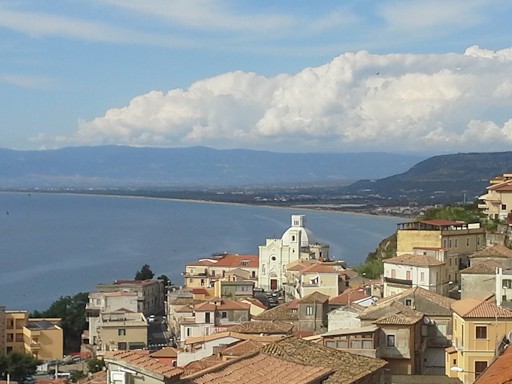Introduction

| Sicilianu | English |
Welcome to Napizia. We hope you enjoy the Sicilian language resources presented here. We also hope you will help us improve the work presented here, because this is not the work of a linguist. This is the work of an economist.
It reflects the dataset assembly techniques used in empirical research. A lexicographer would write a dictionary one word at a time. What we're doing here is assembling a dataset.
Assembling this dataset has helped me learn the Sicilian language, and I hope it provides a nice learning resource for you.
This work will always be a work in progress. It started as a simple effort to conjugate Sicilian verbs and quickly grew into something much larger. In addition to the dictionary, we're also developing a machine translator.
A language is more than just vocabulary and grammar rules. It is the experience, wisdom and pride of the people who speak it. It's poetry, proverbs and prose. So we want to develop a dictionary of the language, not just a dictionary of the grammar. And that's why this project keeps growing.
To provide examples of language, Chiù dâ Palora presents a selection of poetry and a selection of proverbs from Nicotra (1883) and Mortillaro's (1876) dictionaries. You can search the poetry and proverbs with the Trova na Palora tool.
If you enjoy their proverbs or if they help you learn the Sicilian language, you should acquire a copy of Arthur Dieli's Proverbi Siciliani. Dr. Dieli collected his proverbs from a different set of sources, so you will find a different set of proverbs in his book. He also translated them into English and (where appropriate) provides explanatory notes and information.
Dr. Dieli's vocabulary lists forms the basis of the dictionary presented here. He gave me a lot of support and encouragement. And so I hope to keep his work moving forward.
You should also subscribe to Arba Sicula. Every issue is contains poetry, essays, narratives, artwork, recipes and more with Sicilian on the left page and English on the right page. It's a joy to read and its editor, Gaetano Cipolla, has also provided a lot of support for this project. So if this work has been helpful to you, please support their work too.
And if you would like to contribute to this project, the Aiùtami! pages provide a place for you to suggest poetry, proverbs or other examples. You may also use the Aiùtami! tool to report errors. Please report errors! I can only correct the errors that I am aware of.
Just please be patient. A few weeks may pass before I have time to review your contributions and include them in the project. If you would like to get in touch with me faster, you can write to me at: eryk@napizia.com. I would be happy to hear from you.
acknowledgments
Thank you to Arba Sicula, Gaetano Cipolla and Arthur Dieli for developing the resources that made this project possible. They and the Dieli family also provided a lot of intellectual support, resources and encouragement. Their help and assistance built this dictionary.
Thank you to the Bardari and Sciarrone families of Pizzo Calabro for their hospitality, for helping me learn the language and for encouraging me to study the language, the culture and its people.
Thank you to Google Books for putting a large collection of dictionaries at our fingertips. And thank you to Gyan Books for beautifully reproducing some of them for me.
Finally, thank you to Peter Zacharias of the Pennsylvania Dutch Dictionary for his encouragement and suggestions. A kindred spirit is a big help on a project like this. He has given me several ideas that I hope to implement in the near future.
Copyright © 2018-2025 Eryk Wdowiak


